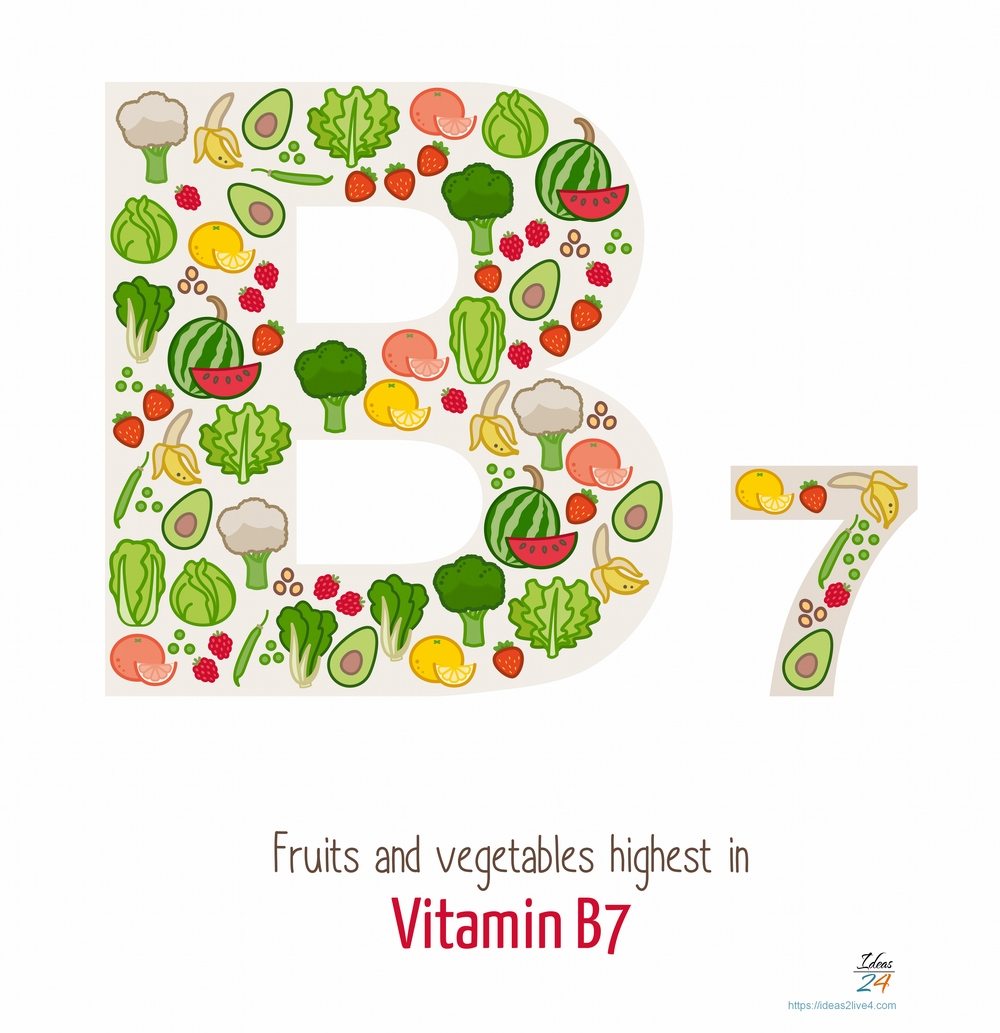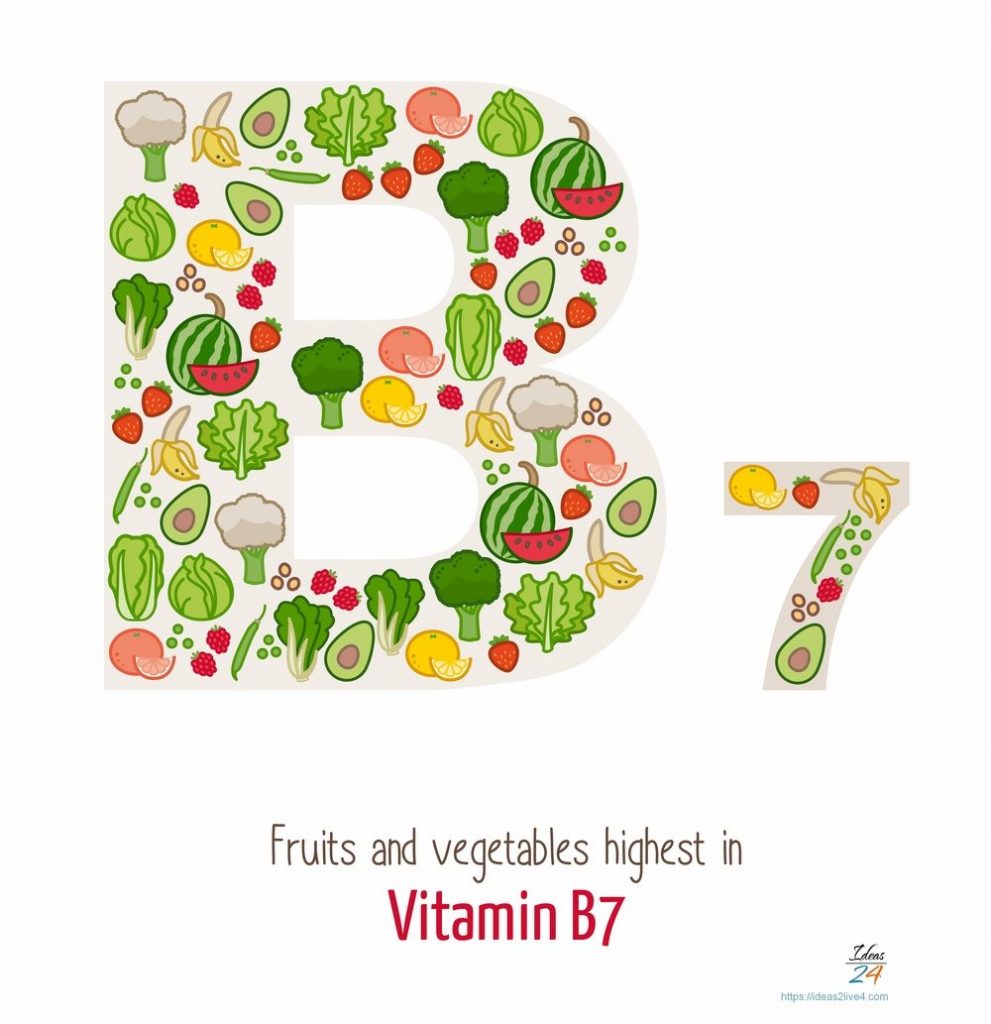Vitamin B7 is another water-soluble nutrient that belongs to the B group. Commonly known as biotin, it plays an essential role in the metabolism of carbohydrates and fats. It also provides adrenal support and helps maintain the health of the nervous system. It helps with weight loss and promotes healthy skin and body tissues, too. In other words, just like all the B vitamins, you really can’t skimp on it.
Contents
The Basics of Vitamin B7
Biotin is an important co-factor to several enzymes. Without biotin, these enzymes are unable to work properly. When this happens, serious complications may result including diseases of the nervous system, intestinal tract, and of the skin.

Vitamin B7, along with all the other members of the B vitamin family, helps maintain the health of nails and hair. It also deals with high blood sugar levels in people diagnosed with type 2 diabetes. It does this by improving glucose tolerance and decreasing resistance to insulin. Pregnant women need good quantities of biotin since it can help to reduce the incidence of birth defects.
Furthermore, biotin metabolizes energy making it available for everyday use. It has also been used in the treatment and management of certain conditions such as alopecia, Crohn’s disease, vaginal candidiasis, seborrheic dermatitis, Rett syndrome, peripheral neuropathy, and Parkinson’s disease.
Why You Need More Biotin
Biotin deficiency is very rare. There are many food sources of vitamin B7 and the body’s daily requirement is very small. Furthermore, the body is very efficient at recycling biotin. But several situations can cause biotin deficiency – regular consumption of raw eggs, intravenous feeding, intestinal malabsorption, and prolonged use of oral antibiotic and certain anti-seizure medications.
A lack of biotin in the body manifests through different symptoms. These include anemia, depression, fatigue, hair loss, and muscle pains. People with vitamin B7 deficiency also display an obvious loss of appetite, dermatitis, and dandruff-prone, dry scalp. Serious cases include nervous system disorders and delayed growth in infants and children.
Taking Too Much Vitamin B7
Vitamin B7 is not known to be toxic. Because it is water-soluble, it is easily flushed out of the body through normal body processes such as urination and defecation. However, too much biotin causes rapid hair and nail growth, abnormal sweating and an increased urge to urinate.
Sources of Vitamin B7
Foods that are rich in biotin include:
- Shelled peanuts (100 mg per cup)
- Almonds (90 mcg per cup)
- Semi-sweet chocolate (32 mcg per 100 gram bar)
- Swiss chard (10.5 mcg per cup)
- Tomatoes (7.5 mcg per cup)
- Yoghurt (7.4 mcg per cup)
- Eggs (7-15 mcg per egg)
- Carrots (6 mcg per cup)
Other sources include avocado, barley, bread, brewer’s yeast, broccoli, cauliflower, cheese, chicken, corn, fish, fortified cereals, milk, mushrooms, organ meats, pork, potatoes, royal jelly, soy, spinach and wheat bran
You can download and print a large format version of our Vitamin B7 graphic here…






